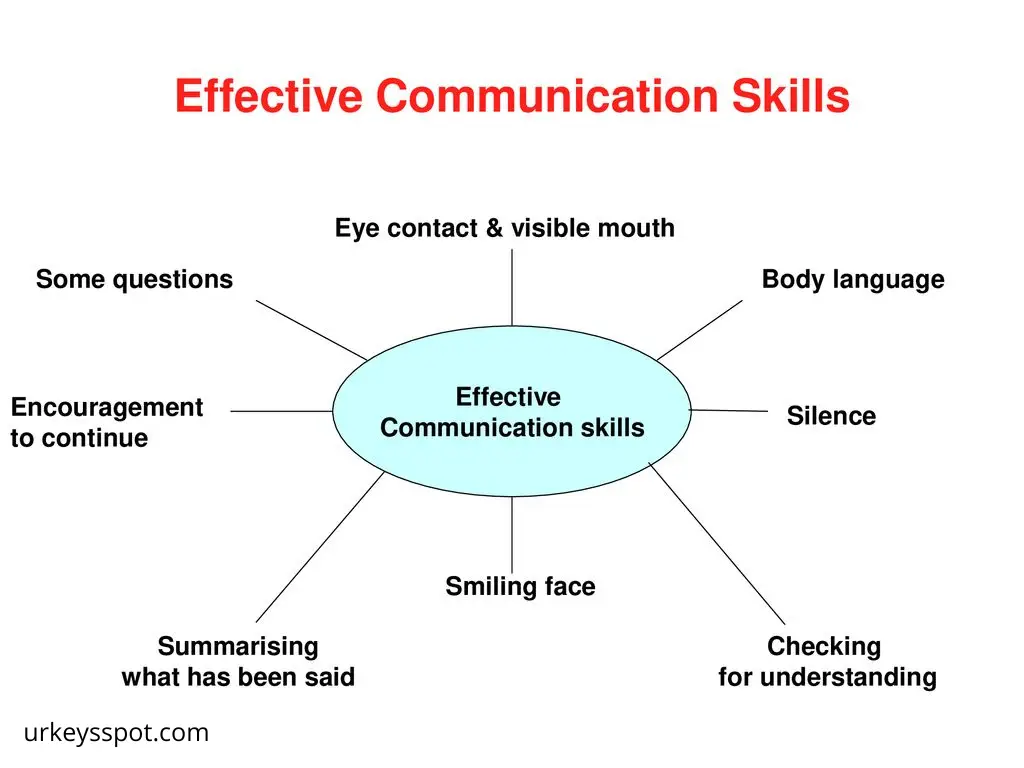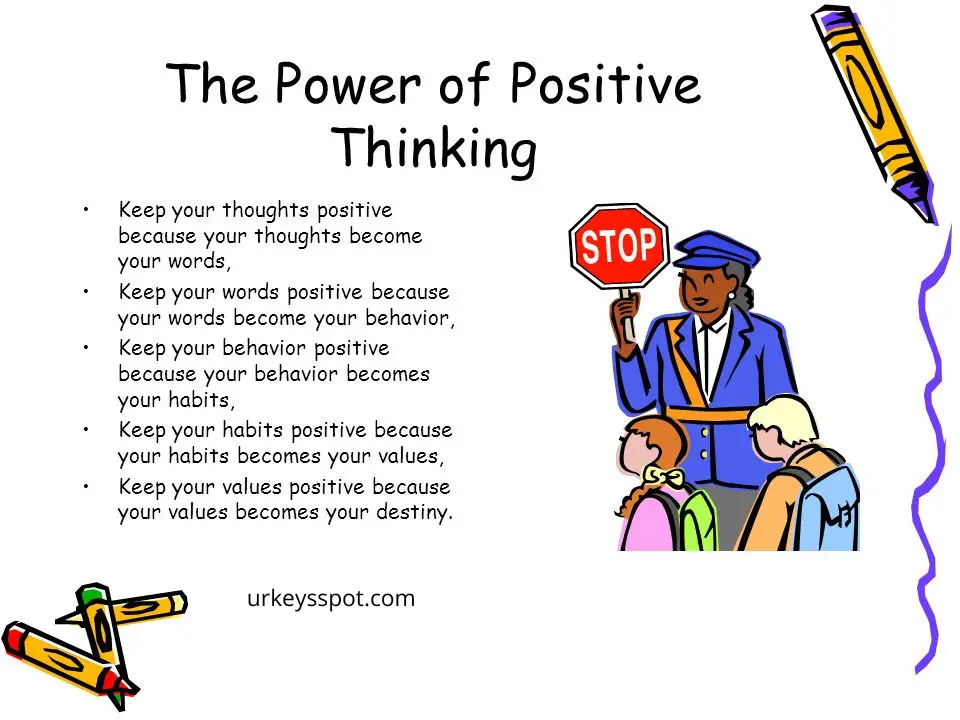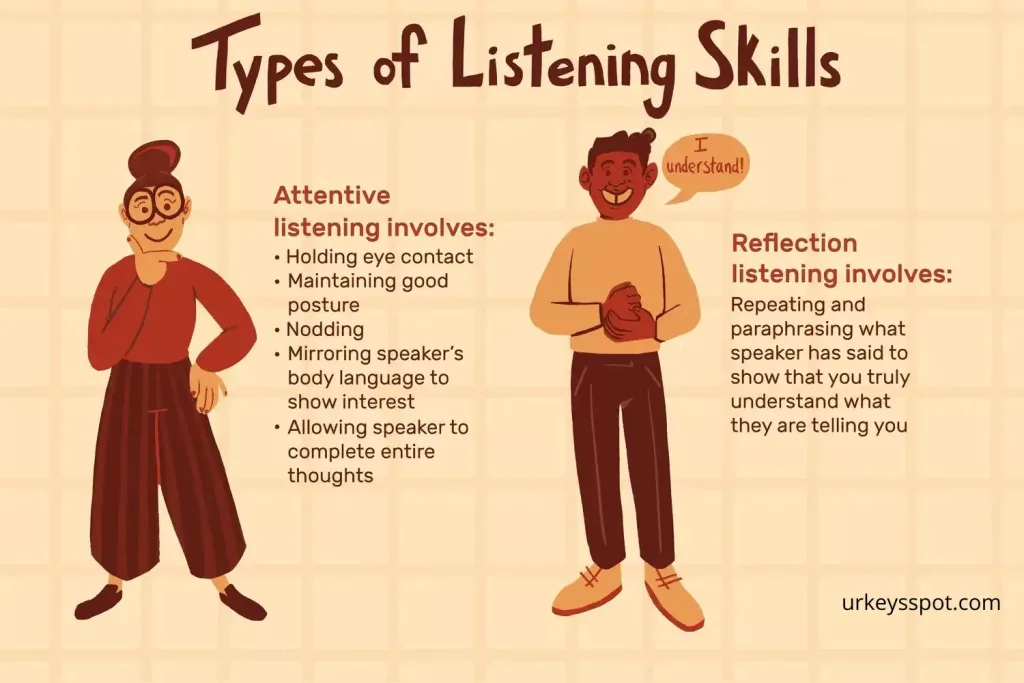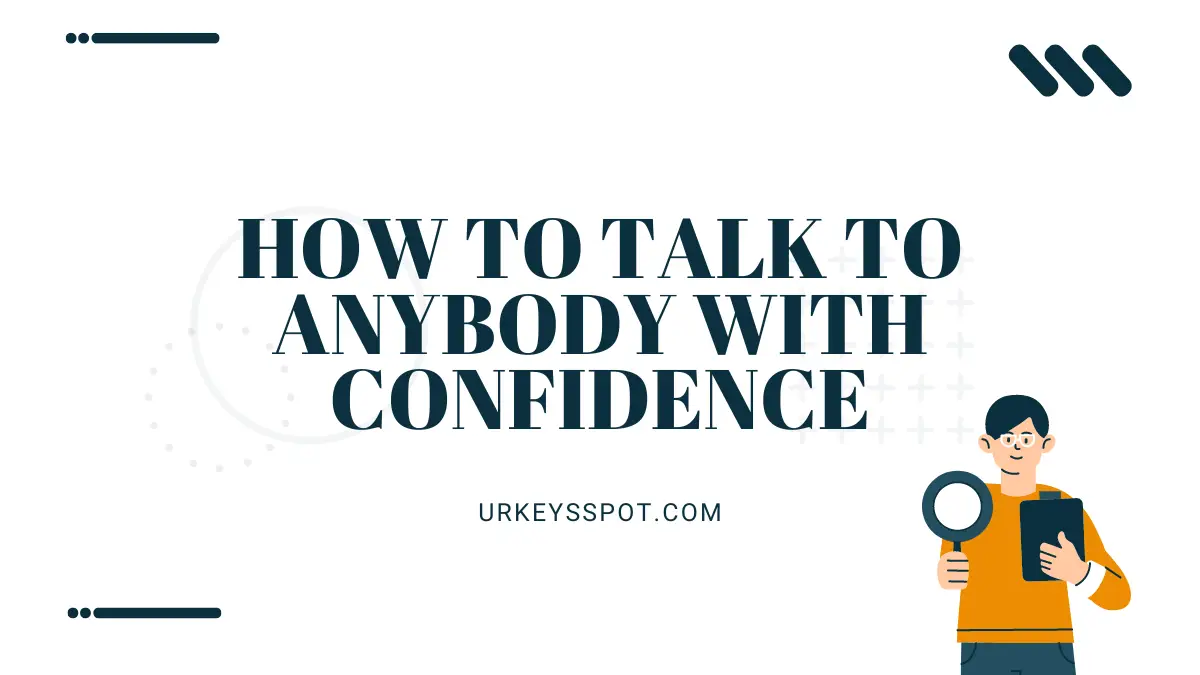In a world where your voice can be your most powerful asset, mastering the art of conversation with confidence is akin to holding a key to limitless doors of opportunities. Whether it’s striking up a chat at a social gathering, navigating professional waters with ease, or simply making a new friend, the ability to communicate confidently can transform your interactions and open up a world of possibilities. This article dives deep into the art of talking to anybody with confidence, offering practical tips, psychological insights, and strategies to enhance your communication skills. From understanding the roots of confidence to applying it across various life scenarios, we’ve got you covered. So, buckle up and get ready to embark on a journey to unlocking your most confident self!
Introduction to Confidence in Communication

Oh, the sheer power of confidence! It’s that magical ingredient that can turn awkward silences into engaging conversations, doubts into decisions, and fears into triumphs. But, what exactly is confidence in communication, and why does it feel like a rare gem for so many?
At its core, confidence in communication is the assurance that bubbles up within, telling you, “Hey, I’ve got this!” It’s the voice that silences the nagging doubts, empowering you to express your thoughts, feelings, and ideas freely and effectively. But here’s the kicker – not everyone’s confidence cup is brimming to the top. For some, it’s a work in progress, a skill to be honed and polished over time.
But fear not! Building confidence is not akin to deciphering an ancient, cryptic code. It’s about understanding the psychology behind it, embracing practical steps for improvement, and knowing how to apply these strategies across different slices of life. Whether you’re eyeing to become the next charismatic leader at your workplace or simply wish to navigate social settings with ease, the journey to becoming a confident communicator is well within reach.
So, let’s dive into the nitty-gritty of building that elusive confidence, shall we? From the role of body language and the power of positive thinking to the secrets behind effective listening and speaking – we’re on a mission to unlock the confident communicator lying dormant within you. With a sprinkle of perseverance and a dash of practice, you’re all set to embark on this transformative journey. Ready to turn the tables on communication anxiety? Let’s get the ball rolling!
Understanding Confidence
The Psychology Behind Confidence
Peeking behind the curtain, the psychology of confidence is like the engine that powers a car; it’s what keeps you moving forward, even on rocky roads. You see, confidence isn’t just about feeling good; it’s deeply rooted in our psyche, influencing how we perceive ourselves and how we interact with the world around us.
The Role of Self-Esteem
At the heart of confidence lies self-esteem – yes, that internal dialogue that narrates our life story. Imagine self-esteem as your inner cheerleader or, on bad days, your harshest critic. It whispers sweet nothings of self-worth or floods your mind with doubts. Here’s the twist: nurturing your self-esteem is a game-changer for boosting confidence. It’s about recognizing your inherent value, regardless of the ups and downs. Remember, every individual shines in their unique way, like stars in the night sky, each contributing to the galaxy’s brilliance.
Engaging in self-reflection, celebrating small victories, and embracing your imperfections can lift your self-esteem. And as it soars, so does your confidence in communication. It’s like a dance where each step, no matter how small, leads you closer to the rhythm of self-assurance.
Overcoming Social Anxiety
Now, let’s talk about the elephant in the room – social anxiety. It’s the shadow that lurks, casting doubts on your ability to converse freely. But here’s a nugget of wisdom: overcoming social anxiety is a journey, not a sprint. It involves stepping out of your comfort zone, one tiny leap at a time.
Start by challenging yourself with manageable social interactions, gradually increasing the stakes as your comfort grows. Practice mindfulness to stay anchored in the present, steering clear of the “what ifs” that fuel anxiety. And remember, everyone fumbles sometimes – it’s part of being human. Embrace these moments with a light heart and a dash of humor. After all, laughter is the universal language of resilience.
By understanding the psychology behind confidence, including the pivotal roles of self-esteem and managing social anxiety, you’re equipping yourself with the tools to navigate the complexities of human interaction. It’s about setting the foundations for a more confident, communicative you. So, take a deep breath, and let’s continue this journey with the knowledge that the keys to unlocking your confident self lie within.
Practical Steps to Build Confidence
Body Language Tips
Ah, body language – the silent orchestra conductor of our daily interactions. It’s fascinating how a simple change in posture can scream confidence louder than words ever could. So, here’s the lowdown: stand tall, shoulders back, head held high. This isn’t just about looking confident; it’s about tricking your brain into feeling it. Yep, that’s right! The power pose isn’t just a myth. It’s a psychological trick that can boost your confidence levels before you step into any conversation.
Now, let’s talk eye contact – the window to the soul, they say. Locking eyes isn’t about staring contests; it’s about engaging. It tells the person you’re conversing with, “Hey, I’m here, I’m listening, and you have my full attention.” But remember, it’s all about balance. Too little might seem disinterested, too much could come off as intimidating. Aim for that sweet spot where respect and interest intersect.
The Power of Positive Thinking

Ever heard of the saying, “You are what you think”? Well, there’s a nugget of truth there. Positive thinking is the secret sauce to boosting your confidence. Start by tuning into your internal monologue. Is it a friend or a foe? Transforming negative thoughts into positive affirmations can shift your mindset from “I can’t” to “I can and I will.”
Visualize success. Before diving into any social interaction, take a moment to picture a positive outcome. Imagine yourself navigating the conversation with ease and grace. This mental rehearsal primes your brain for success, turning the imagined into reality.
Practice and Preparation
Ah, the age-old adage – practice makes perfect. And it rings true for building confidence in communication. The more you engage in conversations, the more natural it becomes. Start small, perhaps with casual chats with strangers or acquaintances. These low-stakes interactions can be great practice fields.
Preparation is your ally. Before stepping into a meeting or social event, arm yourself with topics to discuss. This doesn’t mean you need a script. It’s about having a safety net of ideas to fall back on, preventing those dreaded awkward silences. Think of it as having a conversational toolbox ready at your disposal.
Incorporating these practical steps into your daily routine can significantly impact your confidence levels. From mastering the art of body language to harnessing the power of positive thinking and engaging in regular practice, each step is a building block towards a more confident you. So, take these tips, tailor them to fit your unique journey, and watch as your confidence blossoms in every conversation.
Enhancing Your Communication Skills
Listening Skills

You might be wondering, “What’s listening got to do with talking confidently?” Well, my friend, it’s half the equation! Active listening isn’t just about hearing words; it’s about understanding, empathizing, and responding thoughtfully. When you truly listen, you’re not just waiting for your turn to speak; you’re engaged, present, and connected. This deep level of engagement shows respect and builds trust, laying the groundwork for meaningful conversations.
For those eager to dive deeper into improving communication skills, particularly in listening, visiting SkillsYouNeed can offer invaluable insights. This resource is a treasure trove of information on enhancing verbal and non-verbal communication, ensuring you’re not just heard, but truly understood.
Speaking Clearly and Concisely
Now, let’s flip the coin to speaking. The ability to articulate your thoughts clearly and concisely is a cornerstone of confident communication. It’s not about using big words or complex sentences; it’s about expressing your ideas in a straightforward, understandable manner. Clarity comes from knowing what you want to say and being direct about it. Conciseness, on the other hand, is an art—saying what you need without unnecessary embellishment.
Incorporating active listening and clear, concise speaking into your interactions not only boosts your confidence but also elevates the quality of your conversations. It’s a virtuous cycle: better communication skills lead to more positive interactions, which in turn boost your confidence even further. So, embrace these skills, practice regularly, and watch as your ability to talk to anybody with confidence reaches new heights.
Confidence Across Contexts
Navigating different social landscapes requires a chameleon-like ability to adapt your confidence and communication style. Let’s explore how to apply your burgeoning confidence in both professional and social settings.
Professional Settings
In the boardroom or during a one-on-one with your boss, confidence is your ally, projecting competence and reliability. Here, your body language speaks volumes before you even utter a word. A firm handshake, a steady gaze, and a poised stance set the stage for you to be taken seriously.
But there’s more to it than just looking the part. Preparing meticulously for meetings or presentations can bolster your confidence. Research, rehearse, and anticipate questions. Knowledge is power, and in professional settings, it’s the foundation of your confidence. When you’re well-prepared, it shows, not just in what you say but in how you say it.
For individuals looking to conquer public speaking fears and enhance engagement in professional contexts, Toastmasters International offers a platform to practice and refine your speaking skills in a supportive environment.
Social Settings
Now, let’s dim the lights a bit and enter the realm of social gatherings, where the atmosphere is less formal but no less daunting for many. Here, confidence is about being comfortable in your own skin, willing to share a bit of yourself with others. A genuine smile, an open posture, and a willingness to initiate conversations can make you more approachable.
In both scenarios, the underlying principles of confidence remain the same—authenticity, preparation, and engagement. By applying these tailored strategies to different settings, you’ll find that talking to anybody with confidence isn’t just a skill but a transformative approach to life. Whether you’re closing a deal or making a new friend, the confidence you exude will pave the way for richer, more meaningful interactions.
Incorporating these external links not only enriches your article but also provides your readers with additional tools and resources to further their personal and professional development in the art of confident communication.
FAQs
Navigating the world of confident communication often raises questions. Let’s address some common curiosities that might be swirling in your mind, providing clarity and guidance to further empower your journey.
How can I maintain confidence in a conversation when I feel intimidated?
Feeling intimidated is natural, especially when you’re stepping out of your comfort zone. The key is preparation and mindset. Equip yourself with knowledge about the topic of conversation or the person you’re speaking with. Remind yourself of your worth and contributions. A mental rehearsal of success can also shift your perspective from intimidation to anticipation.
What if I run out of things to say during a conversation?
Ah, the dreaded silence. Instead of viewing it as a faux pas, see it as a natural pause, an opportunity to breathe and reflect. To prevent conversation lulls, keep a mental list of go-to topics, like recent events, hobbies, or open-ended questions that invite discussion. Remember, being curious about the other person can unlock endless conversational threads.
How do I handle criticism or negative feedback confidently?
Receiving criticism can sting, but it’s also a growth opportunity. Approach feedback with an open mind, separating your self-worth from the critique. Thank the person for their input, and consider it constructively. Ask clarifying questions if necessary, and use the feedback as a stepping stone for improvement.
Is it okay to admit I’m nervous during a conversation?
Absolutely! Vulnerability can be a strength, fostering genuine connections. Admitting you’re nervous not only humanizes you but can also diffuse tension, making both parties more comfortable. Often, you’ll find the other person empathizes with your feelings, possibly sharing their own experiences of nervousness.
Conclusion
Congratulations on embarking on this journey to enhance your confidence in communication! From diving into the psychology of confidence and mastering body language to practicing active listening and applying your skills across various contexts, you’ve equipped yourself with a powerful toolkit. Confidence in communication is a transformative skill, opening doors to meaningful connections, professional growth, and personal satisfaction.
But remember, the path to confident communication doesn’t end here. Like any skill worth mastering, it requires persistence, practice, and a willingness to step out of your comfort zone. Each conversation is an opportunity to refine your abilities, learn from your experiences, and build upon the foundation you’ve established.
In the digital age, where interactions often transcend physical spaces, embracing these principles can also enhance your virtual communication, making you a confident communicator, both online and off.
So, take these insights, apply them to your interactions, and watch as your confidence blossoms. The world is rich with conversations waiting to happen, stories waiting to be told, and connections waiting to be made. With your newfound confidence, you’re more than ready to be a vibrant participant in this global dialogue.
Stay curious, remain open, and embrace each communication opportunity with confidence. The journey doesn’t end here; it evolves with every conversation you engage in. Here’s to your continued growth and success in talking to anybody with confidence!

